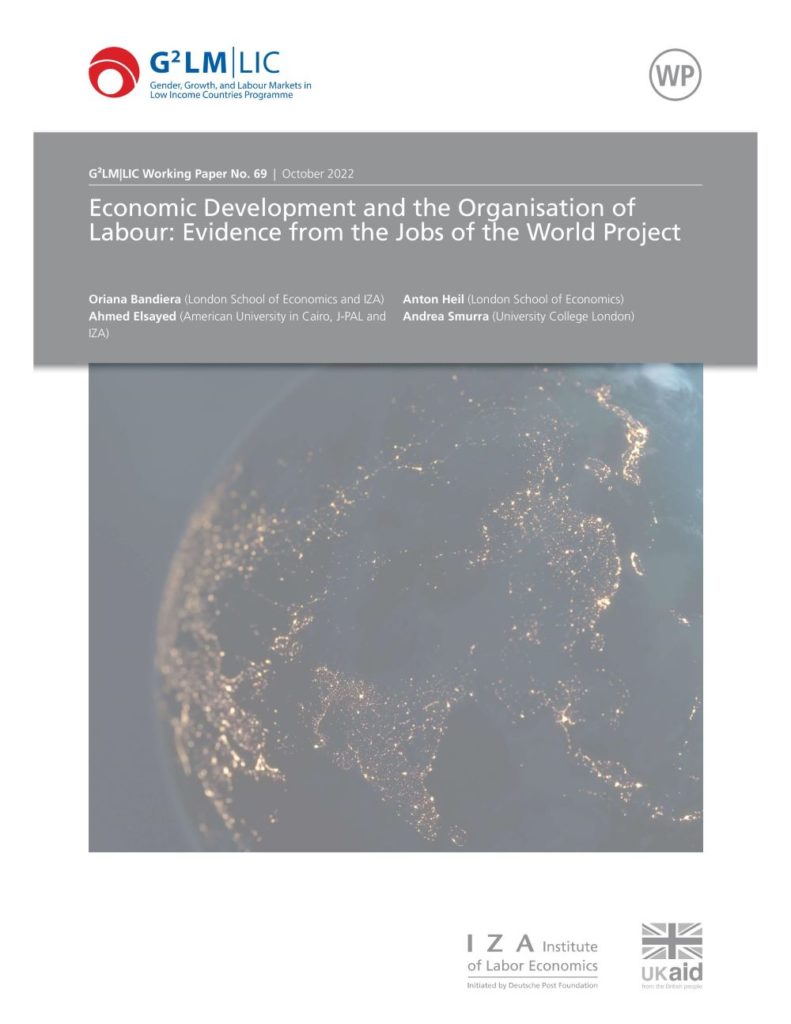
Labour is the sole endowment of the poor and the main factor of production in all economies. Therefore, understanding whether labour is employed efficiently is key to understanding poverty at the micro level and differences in national income at the macro level. In this working paper, the authors use the Jobs of the World database to discuss evidence to show how the nature of jobs and their allocation vary within countries by wealth and gender and across countries in stages of development.
The key contribution of the paper lies in documenting broad transformations in the organisation of labour- that is the nature of jobs and their allocation. Authors outline the transformation in three stages: 1) Marketisation of work; 2) Replacement of self-employed work by wage work; 3) Increasing variety of available occupations. This alludes to the fact that the nature of jobs changes over the course of development from subsistence work to self-employed work to increasingly specialised wage work, but wealth and gender shape the allocation of these changing jobs in the same way throughout. Furthermore, the emergence of more specialised occupations coincides with occupational segregation of the labour force by gender which results in misallocation of talent. This is clear evidence that social norms play a crucial role in organisation of labour. Participation in market work varies enormously even within countries with very similar levels of income. For example, the interquartile range of the share of women who hold paid jobs is around 20 percentage points within every decile of GDP. The dispersion is highest in the lowest decile of GDP at 25 percentage points and only 10 percentage points in the highest decile. To study the role of norms the authors present a systematic meta-analysis on active labour market intervention for female labour market participation. Read the detailed Working Paper here.